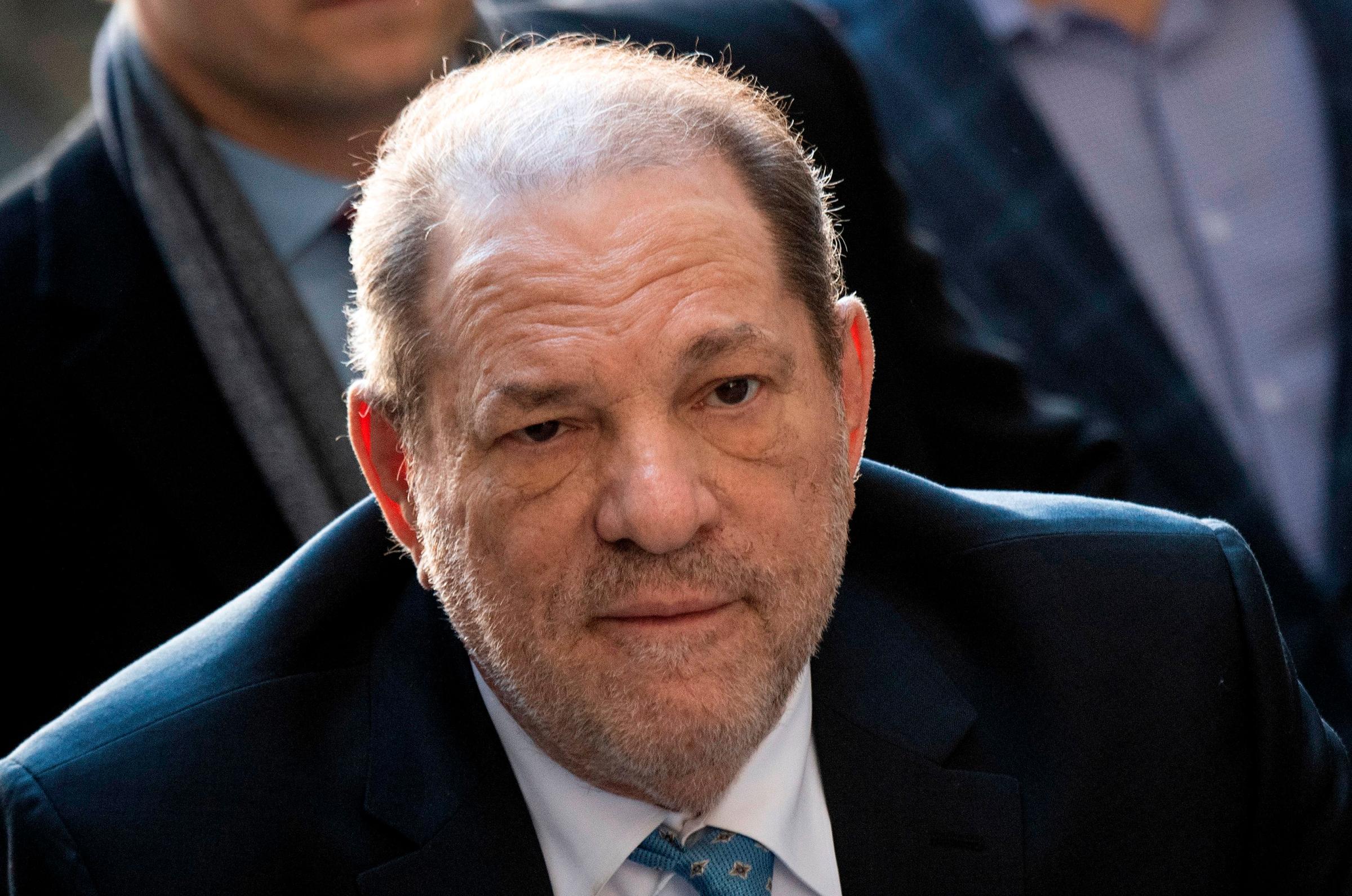As his accusers looked on, Harvey Weinstein was sentenced Wednesday to 23 years in prison for his conviction on sexual assault and third-degree rape—far longer than the five years requested by his defense lawyer, who called it a “de-facto life sentence.”
Before the 67-year-old former movie mogul was sentenced, he made a brief statement, speaking slowly and quietly from his seat as he said he was trying to be a better person. “I really feel remorse for this situation,” he said. “I feel it deeply in my heart.” But as he has in the past, Weinstein, who turns 68 on March 19, insisted that he never thought his past actions were coercive and believed he had a “serious friendship” with each of the two women whose accusations led to his convictions.
The sentencing comes two weeks after a Manhattan jury found Weinstein guilty of raping Jessica Mann, a former aspiring actor, in 2013, and of forcing oral sex on Mimi Haleyi, a former “Project Runway” production assistant, in 2006. Weinstein dodged a possible sentence of life in prison when he was acquitted of two counts of predatory sexual assault, the most serious crimes he was charged with. The most the judge could have given Weinstein was 29 years: 25 for the sexual assault, and four for the rape.
Mann and Haleyi were among the spectators who crowded into the Manhattan courtroom for the sentencing. Also there, seated behind prosecutors, were several other women who either accused Weinstein of sexual assault or who testified to bolster prosecutors’ portrayal of Weinstein as a sexual predator. They included actor Annabella Sciorra, who accused Weinstein of raping her in the 1990s, and her friend and fellow actor Rosie Perez, who testified to lend credence to Sciorra’s account.
Before the sentencing, Mann and Haleyi, whose name appears as Haley in some court documents, stood up and delivered victim impact statements. Haleyi described her happiness in 2006 when she thought Weinstein could help her land a job after she found herself out of work. “I felt elated and joyful. I presumed he wanted to help me because he empathized with my situation,” she said. “I had no reason to believe he would force an act of sexual violence on me, but that’s exactly what he did.”
Her voice breaking, Haleyi said the assault had destroyed her confidence and optimism, and made her fearful of dating.
Mann described the heavyset Weinstein overpowering her, making it impossible for her to fight back or run away. “I ask you to consider the horrors of being rendered immobile,” Mann said, comparing it to an animal playing dead while under extreme stress or attack. “The impact of rape is profound. I live in a body that has become unsafe. I am forced to carry that experience until I die,” she added, urging Judge James Burke to impose the maximum sentence.
In his own somewhat rambling statement, Weinstein insisted he had changed since the allegations against him came out. “My empathy has grown,” he said.

His statement of remorse did not sway Burke, who ordered him to serve his sentences consecutively and who also said Weinstein will have to register as a sex offender. After Burke announced the sentence, the accusers hugged one another, some crying.
Weinstein still faces separate sexual assault charges in Los Angeles, which were announced the day his New York trial began Jan. 6. He has denied all allegations of sexual misconduct, both in New York and in California. The Los Angeles County District Attorney’s office has not said when Weinstein will be arraigned there.
During the high-profile trial in New York, which lasted nearly two months, multiple women told the seven men and five women on the jury similar stories of how Weinstein used his clout as a powerful Hollywood film producer to dangle possible acting roles and jobs as bait to get them alone with him. Once in private, they said he masturbated in front of them, groped or sexually assaulted them.
Prosecutors, sexual assault survivors and advocates for women’s rights say the end of Weinstein’s trial marks a new era of justice.
“The system worked,” said lead prosecutor Joan Illuzzi, addressing the court before the sentence was announced. She praised the women who’d testified against Weinstein, saying that without them, “the defendant would have never been stopped from hurting and destroying more lives.”
But lead defense attorney Donna Rotunno said Weinstein never stood a chance of getting a fair trial because of the widespread media coverage of the case. She also said he should be spared a lengthy prison term because of a variety of health problems, which she said would make anything beyond the minimum sentence a “de-facto life sentence.”
“Mr. Weinstein,” Rotunno said, “is a sick man.”
More Must-Reads from TIME
- Donald Trump Is TIME's 2024 Person of the Year
- Why We Chose Trump as Person of the Year
- Is Intermittent Fasting Good or Bad for You?
- The 100 Must-Read Books of 2024
- The 20 Best Christmas TV Episodes
- Column: If Optimism Feels Ridiculous Now, Try Hope
- The Future of Climate Action Is Trade Policy
- Merle Bombardieri Is Helping People Make the Baby Decision
Contact us at letters@time.com